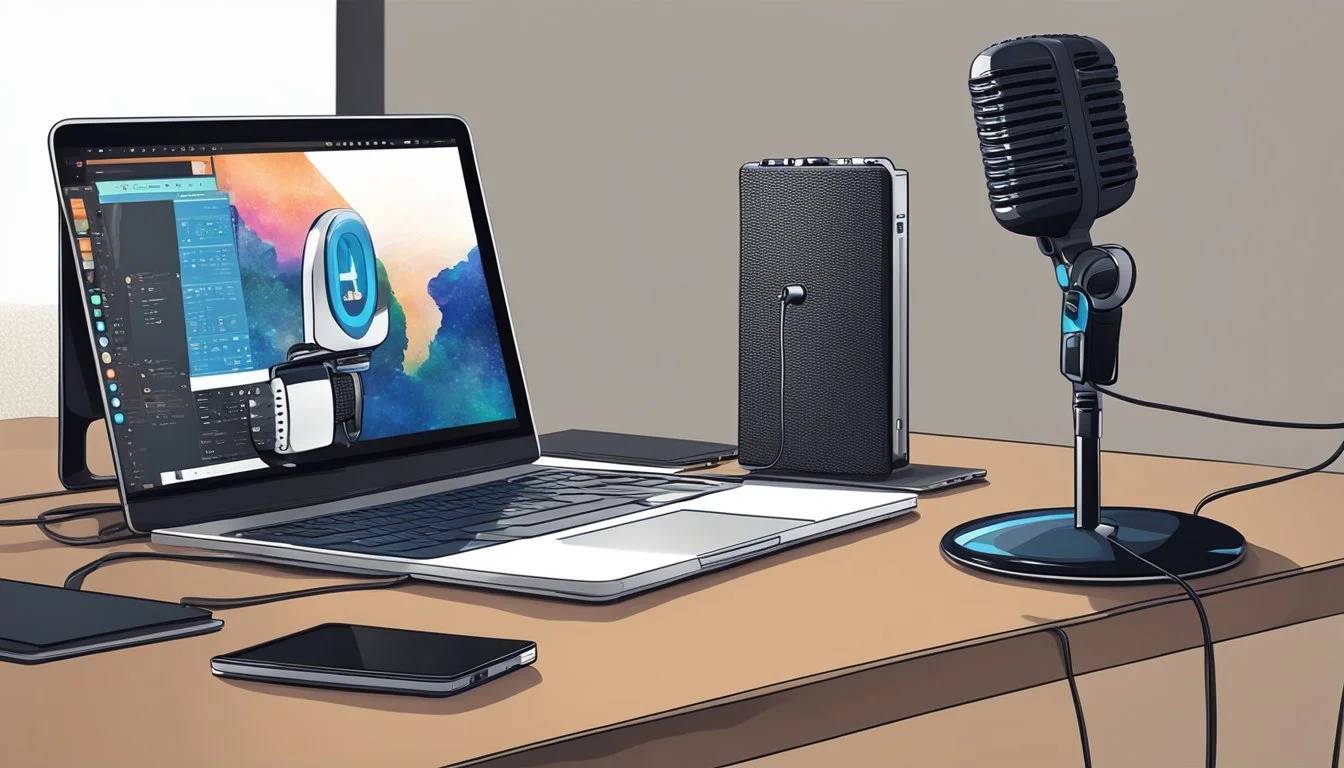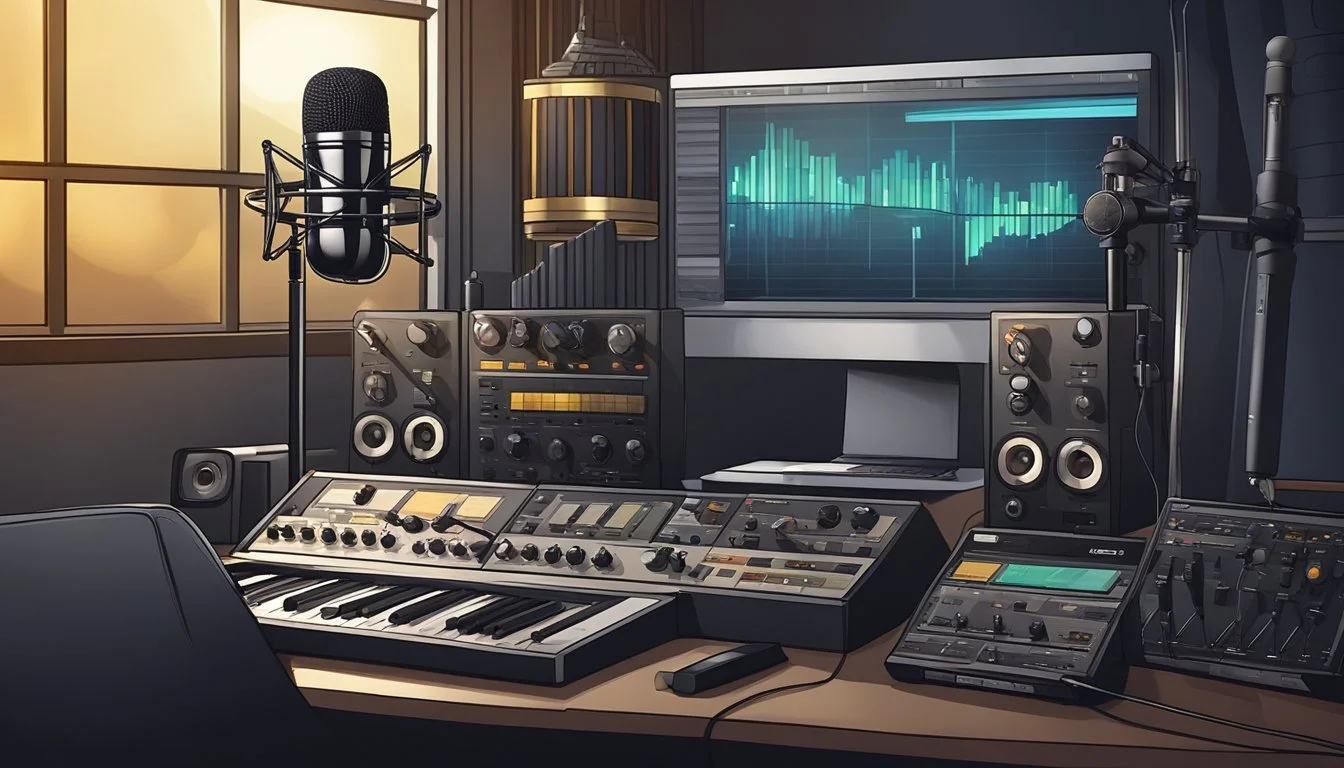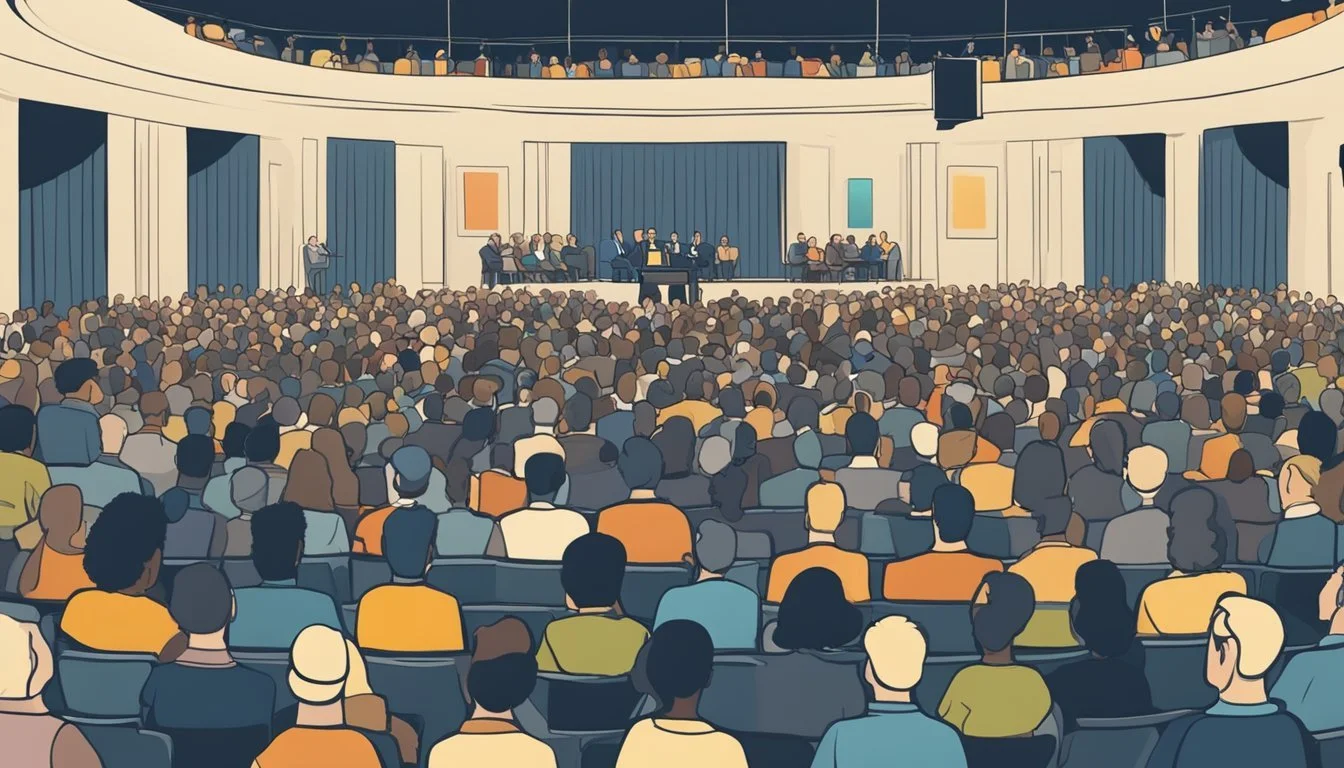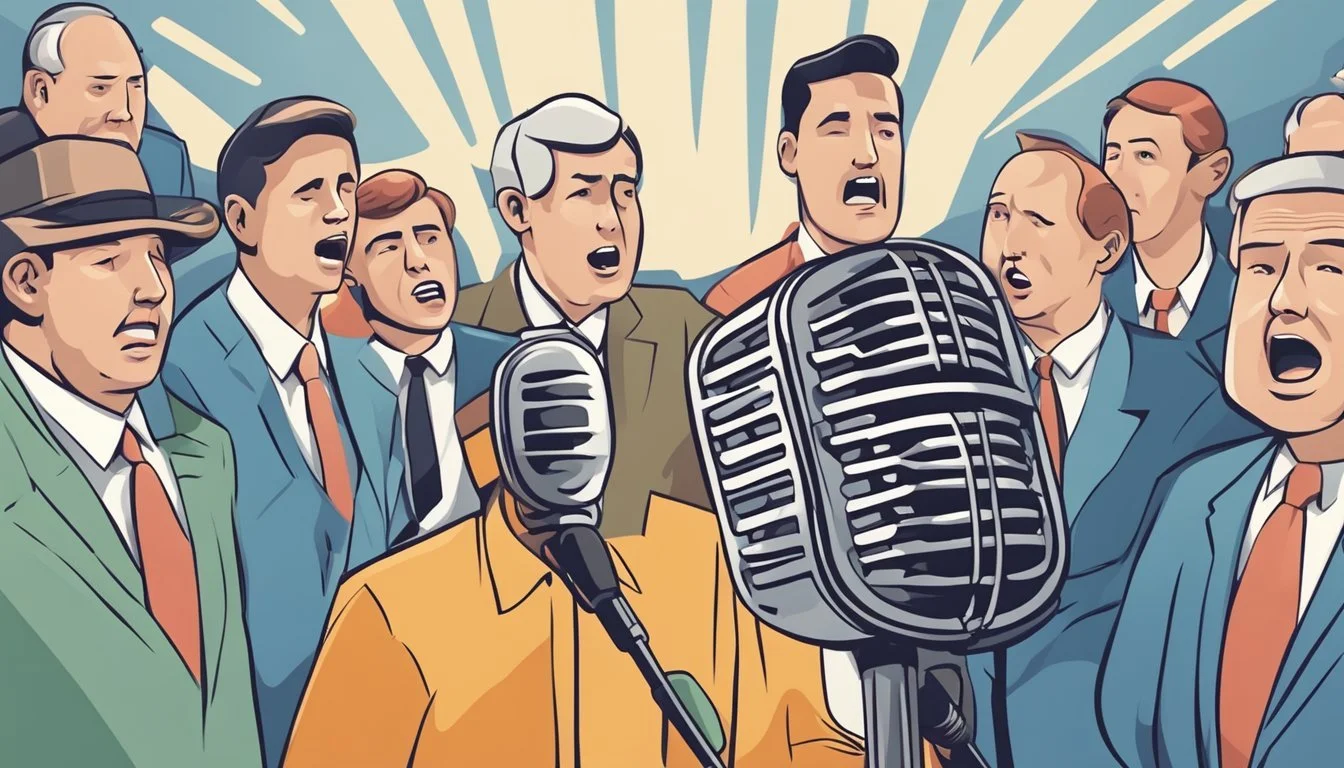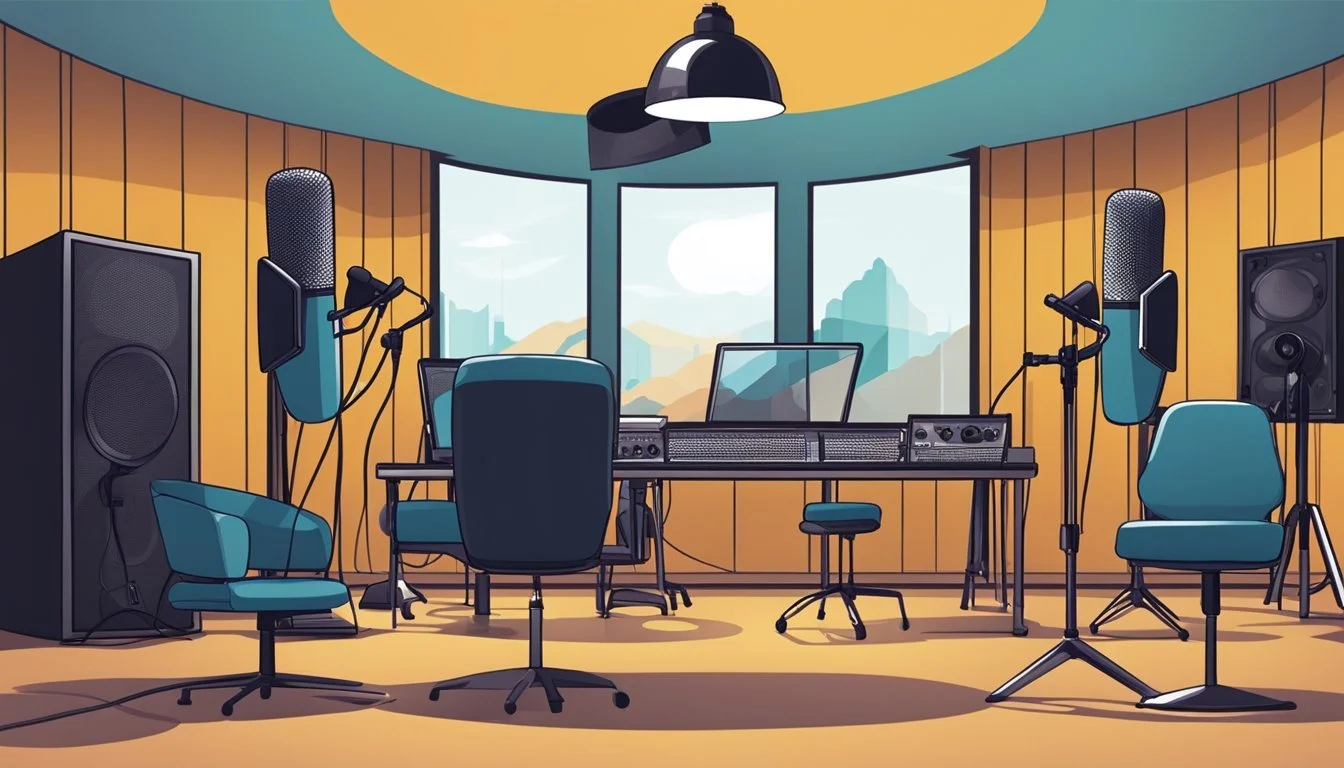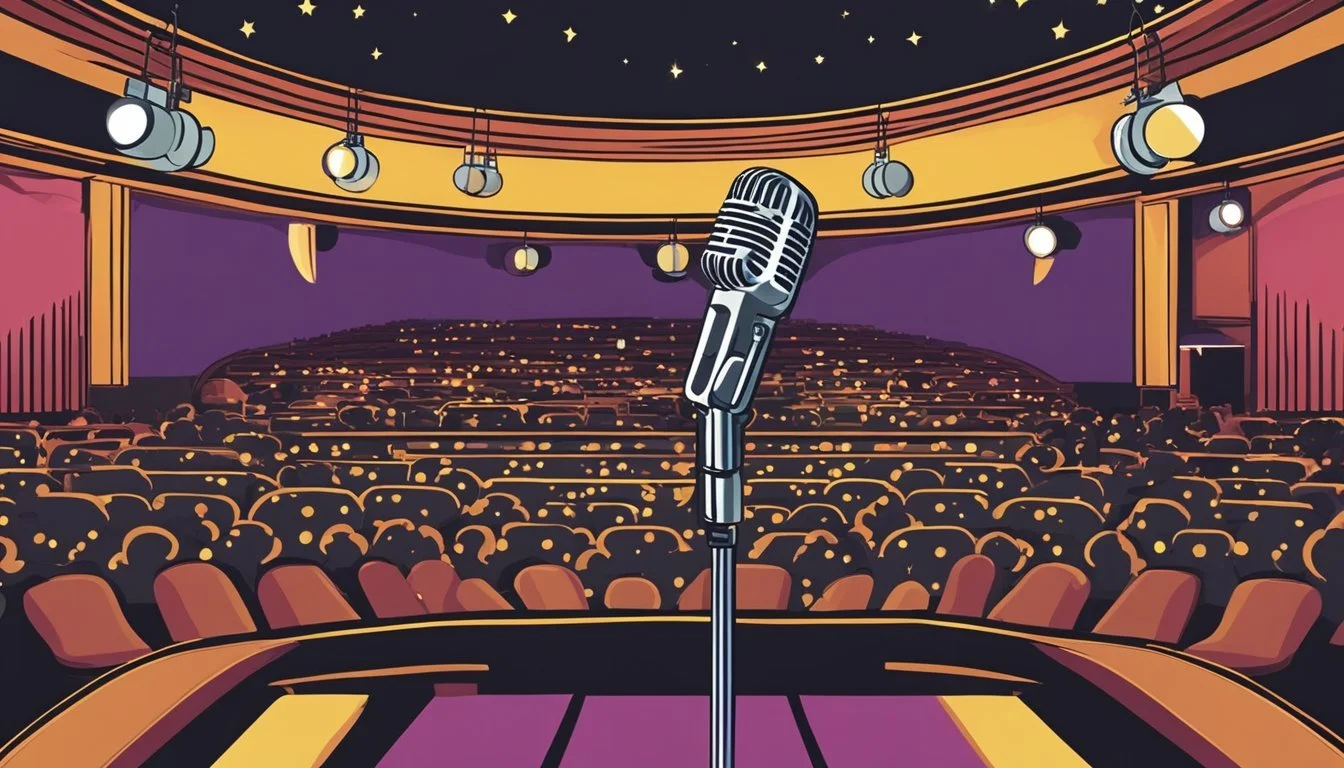Unfiltered Beginnings: The First Joe Rogan Podcast That Started It All!
Joe Rogan launched his now-iconic podcast, The Joe Rogan Experience, on December 24, 2009. The inaugural episode featured Rogan and his friend Brian Redban answering questions from viewers on Twitter during a 2-hour live stream. This humble beginning marked the start of what would become one of the world's most popular and influential podcasts.
The first episode showcased Rogan's raw, unfiltered style that would become his trademark. With no script or formal structure, Rogan and Redban engaged in casual conversation, cracking jokes and discussing topics ranging from comedy to mixed martial arts. The podcast's improvisational nature and Rogan's authentic personality quickly resonated with listeners.
From these modest origins, The Joe Rogan Experience grew into a cultural phenomenon. Rogan's unique blend of comedy, intellectual curiosity, and willingness to explore controversial topics attracted a diverse array of guests and a massive audience. Today, the podcast continues to shape public discourse and cement Rogan's status as a influential media figure.
Origins and Evolution of The Joe Rogan Experience
The Joe Rogan Experience podcast began as a modest venture and grew into a cultural phenomenon. Its journey spans multiple platforms and has featured significant changes in production and distribution.
From Ustream to Mainstream
Joe Rogan launched his podcast on December 24, 2009, with comedian Brian Redban as co-host and producer. The show initially streamed live on Ustream before moving to YouTube. Early episodes featured casual conversations and audience interaction through Twitter.
As the podcast gained traction, it attracted a diverse range of guests from various fields. Rogan's open-ended interview style and willingness to explore controversial topics contributed to the show's growing popularity.
In 2012, Jamie Vernon joined as a producer, gradually taking over production duties from Redban. This transition marked a shift towards more polished production values and expanded reach.
Transition to Spotify Exclusive
In 2020, Rogan announced a multi-year licensing deal with Spotify, reportedly worth over $100 million. This move made The Joe Rogan Experience a Spotify exclusive, removing full episodes from YouTube and other platforms.
The transition sparked debates about content accessibility and platform power. Despite initial concerns, the podcast maintained its massive audience on Spotify.
This exclusive deal allowed Rogan greater creative freedom but also led to increased scrutiny of his content. The move solidified The Joe Rogan Experience as one of the world's most influential podcasts.
Content and Format
The first Joe Rogan podcast episode set the foundation for its future success. It introduced a casual, conversational style that would become the show's signature format.
Diverse Range of Topics and Guests
Joe Rogan's podcast quickly became known for its wide-ranging discussions. Early episodes covered topics like comedy, martial arts, and current events. As the show grew, it featured guests from various fields, including scientists, politicians, and entertainers.
Bernie Sanders and Donald Trump both appeared on the podcast during their presidential campaigns. Elon Musk's appearances garnered significant attention, discussing topics from artificial intelligence to space exploration.
The show gained notoriety for hosting controversial figures like Alex Jones. During the Covid-19 pandemic, Rogan's discussions on the topic sparked both interest and debate.
Production and Co-Host Roles
Brian Redban initially co-hosted and produced the podcast with Joe Rogan. The first episode aired on December 24, 2009, using a simple live-streaming setup.
As the show evolved, production quality improved. Jamie Vernon joined the team in 2012, eventually taking over production duties from Redban.
The podcast's format remained consistent: long-form conversations, often lasting two to three hours. This approach allowed for in-depth discussions and became a hallmark of the show.
Rogan's role as host developed over time. He honed his interviewing skills, balancing his comedic background with a genuine curiosity about his guests' expertise.
Impact and Reach
Joe Rogan's podcast quickly grew from a casual conversation to a cultural phenomenon. Its influence spread across media and society, attracting millions of listeners and viewers.
Influence on Popular Culture
The Joe Rogan Experience shaped public discourse on various topics. Rogan's long-form interviews allowed guests to express complex ideas, often sparking debates and trending conversations online. The podcast influenced how people consume media, with many viewers preferring in-depth discussions over short sound bites.
Rogan's platform elevated lesser-known experts and thinkers to mainstream attention. His endorsements of products and ideas led to significant market impacts, dubbed the "Rogan Effect" by some observers.
Listenership and Viewership Data
By 2020, The Joe Rogan Experience consistently ranked among the top podcasts globally. Spotify reported that it was their most popular podcast after acquiring exclusive rights.
Average listeners per episode: 11 million (2020)
YouTube subscribers before Spotify deal: 8.4 million
Estimated annual ad revenue: $30-50 million (pre-Spotify deal)
The podcast's reach extended beyond audio, with clips frequently going viral on social media platforms. This multi-platform presence amplified its impact and helped maintain its position as a leading voice in digital media.
Controversies and Criticism
Joe Rogan's podcast has faced significant backlash over controversial content and statements. Critics have accused Rogan of spreading misinformation and using offensive language.
Discussions of Covid-19 and Vaccines
Rogan sparked debate by hosting guests who shared skeptical views on Covid-19 vaccines. He interviewed Dr. Robert Malone, who made disputed claims about mRNA technology. Health experts expressed concern that Rogan was amplifying misleading information about vaccine safety and efficacy to his large audience.
Spotify added content advisories to podcast episodes discussing Covid-19 in response to the controversy. Rogan stated he would try to balance controversial viewpoints with mainstream medical perspectives in future episodes.
Use of Racial Slurs and Misinformation
A compilation video showed Rogan using racial slurs multiple times on his podcast over the years. He apologized and called it "the most regretful and shameful thing" he's ever had to address publicly. Rogan claimed the clips were taken out of context from conversations about the slurs themselves.
Spotify removed over 100 episodes of Rogan's podcast that contained offensive language. Critics argued this highlighted a pattern of problematic content beyond just Covid-19 discussions. The incidents reignited debates about content moderation on podcast platforms.
Joe Rogan's Professional Background
Joe Rogan's career spans multiple entertainment and sports domains. His journey includes successful stints in stand-up comedy, television hosting, and UFC commentating, all while maintaining a deep passion for martial arts.
Stand-Up Comedy and Television Career
Rogan began his stand-up comedy career in 1988 in Boston. He quickly gained recognition for his energetic performances and incisive humor. In 1994, he moved to Los Angeles and landed a role on the NBC sitcom "NewsRadio," playing Joe Garrelli from 1995 to 1999.
Rogan's comedy specials gained popularity on Comedy Central. His notable works include "Joe Rogan Live" and "Talking Monkeys in Space." Netflix later featured his comedy specials, expanding his reach to a global audience.
From 2001 to 2006, Rogan hosted the reality show "Fear Factor" on NBC. This role significantly increased his public profile and established him as a versatile television personality.
UFC Commentating and Martial Arts Passion
Rogan's involvement with the Ultimate Fighting Championship (UFC) began in 1997. He initially worked as a backstage interviewer before becoming a color commentator in 2002.
His expertise in martial arts lends credibility to his commentary. Rogan holds black belts in Brazilian Jiu-Jitsu and Taekwondo. He competed in Taekwondo tournaments in his youth, winning the US Open Championship at age 19.
Rogan's passionate and knowledgeable commentary has become integral to the UFC viewing experience. He brings technical insight and enthusiasm to broadcasts, enhancing fans' understanding of fights.
Involvement in Film and Television
Joe Rogan expanded his career beyond podcasting and stand-up comedy into film and television. He took on various acting roles and hosted unscripted shows, showcasing his versatility as an entertainer.
Filmography Highlights
Rogan appeared in the 2011 comedy film "Zookeeper" alongside Kevin James. He played the voice of Gale the gorilla, adding his comedic flair to the talking animal character.
In 2012, Rogan had a supporting role in "Here Comes the Boom," another Kevin James comedy. He portrayed a high school biology teacher who becomes a mixed martial arts fighter.
These film roles allowed Rogan to leverage his comedic talents and martial arts knowledge on the big screen.
Exploring Unscripted Television
Rogan hosted "Fear Factor" from 2001 to 2006, challenging contestants with extreme stunts and unusual eating challenges. The show became a cultural phenomenon and significantly boosted his television profile.
In 2013, Rogan created and hosted "Joe Rogan Questions Everything" on Syfy. The show investigated mysterious topics like Bigfoot, UFOs, and psychic powers.
This series blended Rogan's curiosity about fringe subjects with his comedic approach, allowing him to explore unconventional ideas in an entertaining format.
Influence on Stand-Up and Podcast Industries
Joe Rogan's impact extends beyond his own success, shaping both the stand-up comedy and podcasting worlds. His unique approach and massive platform have influenced countless comedians and content creators.
Legacy as a Standup Comedian
Rogan's stand-up career spans decades, earning him respect in comedy circles. His raw, unfiltered style resonates with audiences and fellow comedians alike.
In 2022, Rogan opened Comedy Mothership, a comedy club in Austin, Texas. This venue provides a platform for both established and up-and-coming comedians.
Rogan's success encourages comedians to explore controversial topics and push boundaries. His ability to seamlessly blend comedy with intellectual discourse inspires many to follow suit.
Shaping the Podcast Landscape
The Joe Rogan Experience revolutionized podcasting. Its long-form, conversational format became a blueprint for countless shows.
Rogan's podcast deals with Spotify and advertising partnerships set new standards for monetization in the industry. This paved the way for podcasters to earn substantial incomes.
His diverse guest list, ranging from UFC fighters to Fox News personalities, demonstrated the medium's potential for in-depth discussions across various fields.
Rogan's success inspired many celebrities and public figures to launch their own podcasts, further expanding the medium's reach and influence.
Personal Endeavors and Business Ventures
Joe Rogan has expanded beyond podcasting into various business pursuits and advocacy efforts. He has leveraged his platform to promote products and ideas he believes in, while also championing free speech across different mediums.
Entrepreneurial Pursuits and Endorsements
Rogan launched his own line of supplements called Onnit in 2010. The company offers a range of nutrition products, fitness equipment, and lifestyle goods. He frequently promotes Onnit on his podcast and social media channels.
In 2020, Rogan signed an exclusive multi-year licensing deal with Spotify, reportedly worth over $100 million. This move significantly increased his reach and revenue potential.
He has also endorsed several products on his show, including athletic gear and CBD oils. These partnerships have further diversified his income streams beyond traditional media.
Advocacy for Free Speech and Platforms
Rogan is a vocal proponent of free speech and open dialogue. He often invites controversial guests onto his podcast, defending their right to express their views.
In 2022, he joined Rumble, a video-sharing platform that markets itself as a free speech alternative to YouTube. This move aligned with his stance against perceived censorship on mainstream social media.
Rogan has criticized Twitter and Facebook for their content moderation policies. He argues that these platforms should allow a wider range of opinions, even if they're unpopular or controversial.
His advocacy extends to traditional media as well. He frequently discusses the importance of independent journalism and diverse viewpoints in news coverage.

